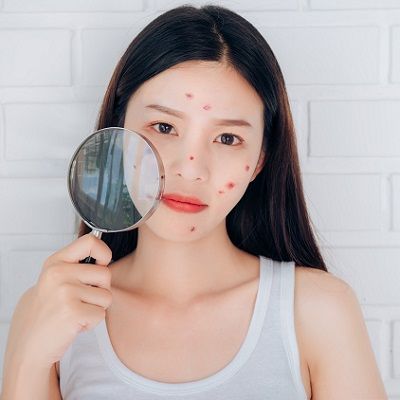
What is Acne?
When your hair follicles become clogged with oil and dead skin cells, acne is a skin disorder that develops. It results in pimples, blackheads, or whiteheads. Although it may afflict anybody at any age, acne is most prevalent among teens.
Although there are effective treatments for acne, the condition may continue. The lumps and pimples heal slowly, and just as one starts to go, another one seems to appear.
Depending on how severe it is, acne can leave physical scars and create emotional discomfort. The earlier you begin with Acne Treatment in Dubai, the lesser your likelihood of developing such issues.
Acne Types:
Numerous different lesions, or pimples, are caused by acne. Comedones are the medical term for swollen or blocked hair follicles. A few acne types are:
Whiteheads:
Whiteheads are blocked hair follicles that remain below the skin’s surface and appear as white lumps.
Blackheads:
Plugged follicles that rise to the skin’s surface and break open. They are not unclean; the reason they seem black on the skin’s surface is that the air taints the sebum.
Papules:
Small, pink lumps on the skin are inflamed lesions that can be sensitive to the touch.
Pustules:
Pustules, often known as pimples, are papules that are topped with white, yellow, or red lesions that are filled with pus.
Nodules:
Significant, uncomfortable solid lesions that are embedded deeply in the skin.
Severe Nodular Acne:
Deep, agonizing sores that are loaded with pus. Acne treatment in Dubai & Abu Dhabi can help you get rid of these ugly pimples.
What Causes Acne?
Androgen hormones, which normally become active throughout adolescence and young adulthood, are a major hormonal factor in acne. Acne can be brought on by sensitivity to these hormones, in addition to surface skin microorganisms and fatty acids within oil glands.
Acne can be brought on by or made worse by certain factors:
- Hormone levels that change around a woman’s cycle.
- Picking at an acne scar.
- Wearables include caps and sports helmets, as well as clothing.
- Pollution in the air and specific meteorological conditions, particularly excessive humidity.
- using fatty or oily personal care products, such as thick creams, lotions, or waxes, or working in an environment where you frequently come into touch with grease (such as working at a restaurant where there are greasy food surfaces and frying oil).
- Stress, which raises cortisol levels, can also make acne worse.
- Some medicines.
- Genetics.
Skin Care Practices to Reduce Acne:
Do you consistently treat your acne yet still get outbreaks? Your Skin care regimen could be the issue. To assist you to receive the greatest outcomes from your Acne Treatment in Dubai, physicians prescribe the following skin care practices:
Whenever you sweat wash your face:
Washing your skin as quickly as you can after sweating is advised since perspiration, particularly while wearing a cap or helmet, can exacerbate acne.
Apply a soft, non-abrasive cleaner using your fingertips:
The skin might become irritated while using a washcloth, mesh sponge, or anything else.
Take care of your skin. Use mild products, such as alcohol-free ones. Avoid using irritants such as astringents, toners, and exfoliants on your skin. Acne looks worse on skin that is dry and red.
- Scrubbing your face might exacerbate acne. Do not succumb to the urge to clean your skin.
- Use warm water to rinse
- Allow your skin to recover itself. Your skin will take longer to clean up if you squeeze, pop, or pick at your Pimples, and you run the risk of developing acne scars.
- Don’t touch your face with your hands. Throughout the day, touching your skin might lead to flare-ups.
- Avoid the sun and tanning booths. Your skin ages as you tan. Additionally, certain Acne Treatments in Dubai leave the skin very vulnerable to ultraviolet (UV) radiation, which is present in both sunlight and indoor tanning equipment. The chance of developing melanoma, the most lethal type of skin cancer, is increased by 75% by using tanning beds.
When One Should Visit a Dermatologist?
You should see a dermatologist if;
- You feel bashful or ashamed because of your acne.
- You tried several goods, but they didn’t work.
- Your skin is becoming darker or has scars from your acne.
Final Verdict!
Almost of acne cases may now be properly treated nowadays. Dermatologists can treat current acne, stop future outbreaks, and lessen the risk of scarring. You should schedule a consultation with a dermatologist if you have any questions or concerns about Acne Treatment in Dubai and how to care for your skin.











